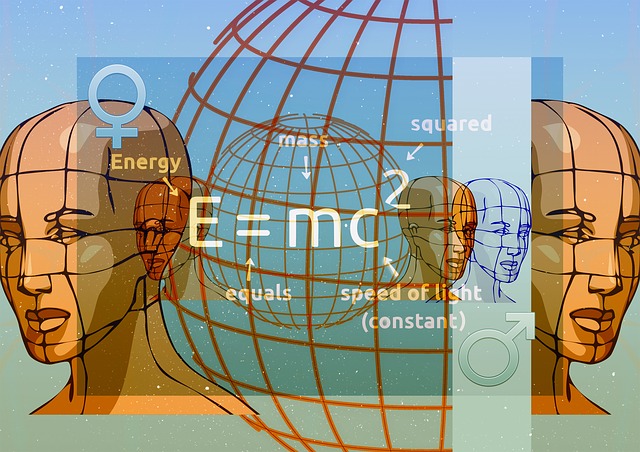Einstein's Theories of Relativity and Gravitation
THE WORLD - AND US
An Introductory Discussion Of The Philosophy Of Relativity, And Of The Mechanism Of Our Contact With Time And Space
By Various Contributors And The EDITOR
 FROM time beyond the dawn of history, man kind has been seeking to explain the universe. At first the effort did not
concern itself further prob ably than to make supposition as to what were the causes of the various phenomena presented to
the senses. As knowledge increased, first by observation and later by experiment also, the ideas as to these causes
passed progressively through three stages - the theological (the causes were thought to be spirits or gods); the
metaphysical (the causes were thought in this secondary or intermediate stage to be some inherent, animating, energizing
principles); and the scientific (the causes were finally thought of as simply mechanical, chemical, and
magneto-electrical attractions and repulsions, qualities or characteristics of matter itself, or of the thing of which matter
is itself composed.)
FROM time beyond the dawn of history, man kind has been seeking to explain the universe. At first the effort did not
concern itself further prob ably than to make supposition as to what were the causes of the various phenomena presented to
the senses. As knowledge increased, first by observation and later by experiment also, the ideas as to these causes
passed progressively through three stages - the theological (the causes were thought to be spirits or gods); the
metaphysical (the causes were thought in this secondary or intermediate stage to be some inherent, animating, energizing
principles); and the scientific (the causes were finally thought of as simply mechanical, chemical, and
magneto-electrical attractions and repulsions, qualities or characteristics of matter itself, or of the thing of which matter
is itself composed.)
With increase of knowledge, and along with the inquiry as to the nature of causes, there arose an in quiry also as to what reality was. What was the essential nature of the stuff of which the universe was made, what was matter, what were things in themselves, What were the noumena (the realities), lying back of the phenomena (the appearances)? Gradually ideas explaining motion, force, and energy were developed. At the same time inquiry was made as to the nature of man, the working of his mind, the nature of thought, the relation of his concepts (ideas) to his perceptions (knowledge gained through the sense) and the relations of both to the noumena (realities) .]283
. . .